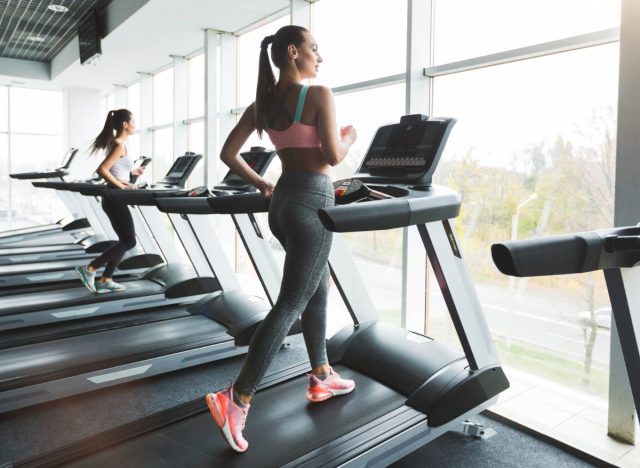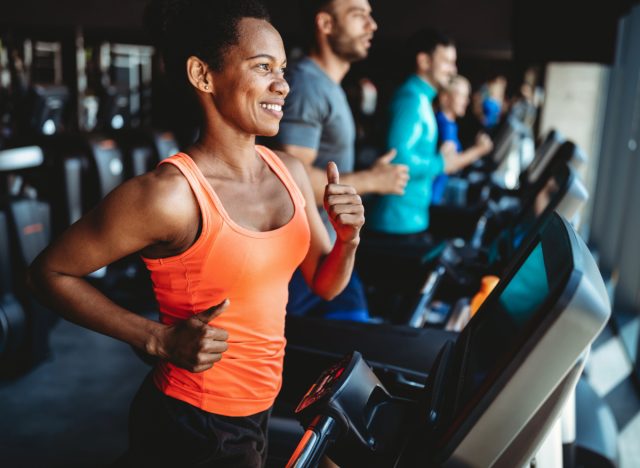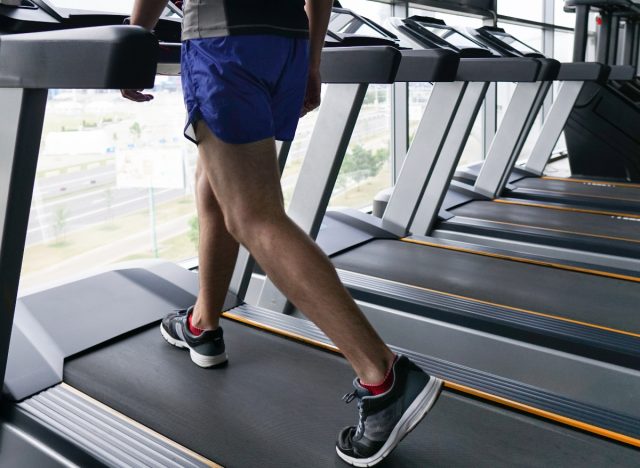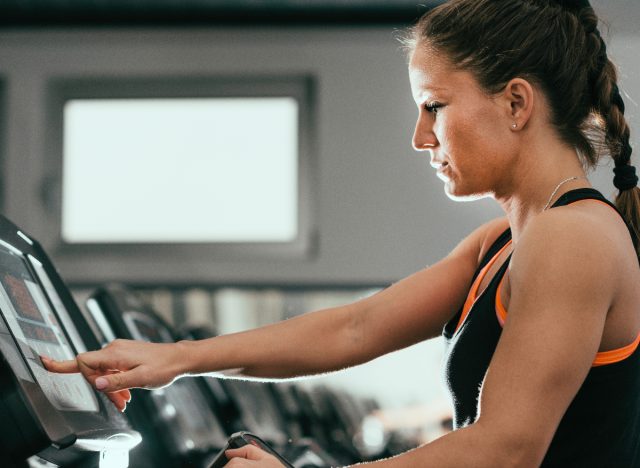The Best Cardio Machine for Weight Loss, According to an Expert

Treadmills, ellipticals, stationary bikes, rowing machines—you may think these exercise equipment deliver the same benefits, but not all cardio machines are created equal when it comes to losing weight. Choosing the best cardio machine for weight loss and your personal preferences can make a world of difference in your journey by keeping your cardio sessions fun and enjoyable. That way, you can stay consistent long-term, which studies indicate is essential for healthy, sustainable weight loss.
But with countless options available, finding a cardio machine that aligns with your goals and keeps you motivated can be a tricky endeavor. That’s why we spoke with Chris Mohr, PhD, RD, an exercise physiologist and fitness and nutrition advisor for Fortune Recommends, who unveils his top recommended cardio machine for melting body fat and boosting your health.
Research consistently shows that regular cardiovascular exercise is crucial for weight loss and improving overall health. According to Johns Hopkins Medicine, aerobic activities like brisk walking, running, swimming, and cycling help increase your heart rate, burn calories, and boost metabolism, all of which are vital components for shedding unwanted pounds.
However, various cardio machines offer more benefits (and potential drawbacks) than others for weight loss. Below, Mohr reveals his top-recommended cardio machine for weight loss that can transform your fitness routine.
The Best Cardio Machine for Weight Loss

You can’t beat the classic treadmill when it comes to killer cardio machines for weight loss. A 2021 study in the Journal of Sports Science & Medicine found that treadmills are the most efficient modality for burning fat during exercise compared to ellipticals and rowing machines. This is likely due to the treadmill’s versatility, which allows you to combine walking, jogging, and running to keep your sweat sessions fun and challenging.
“Treadmills are great for weight loss because they are versatile enough to work for any fitness level, from beginners to advanced users,” explains Mohr. “Its ease of use in adjusting both the incline and speed makes it perfect for increasing workout intensity over time, which is helpful for sustainable weight loss, but of course, it is not independent of resistance training and an overall healthy diet.”
Some treadmills allow you to simulate different terrains, adding variety to your workouts. This feature can help keep you engaged while training your body for real-world activities like hiking or running outdoors.
Treadmill Benefits Beyond Weight Loss

“Using a treadmill helps in expending more energy, which is necessary for weight loss and maintenance,” says Mohr. “It increases your heart rate and improves cardiovascular health; many benefits are independent of body weight. The ability to change settings to simulate different terrains and do interval training helps increase your energy expended as well. Treadmills often feature digital monitors that show your progress, such as distance and time, which may help keep you motivated by seeing your achievements.”
Treadmills elevate your heart rate, which one 2019 study suggests can help strengthen your heart and lungs for better cardiovascular health. Research shows that improved cardiovascular health is vital for overall well-being and can reduce chronic disease risk, including heart disease and diabetes.
Using treadmills to perform interval workouts can deliver even more health benefits. Studies suggest that alternating between periods of high-intensity running and active recovery (walking) can enhance cardiovascular fitness and calorie burn.
Additionally, most treadmills include built-in digital monitors. These monitors provide valuable feedback on your workout progress, such as distance covered, time spent exercising, and calories burned.
Other Considerations When Using Treadmills

While treadmills are generally safe and effective for most people, Mohr says some exceptions exist. “Treadmills are generally safe for most people, but they may not be best for those with problems with knees, hips, or lower back,” he tells us. “The impact generated from walking or running on a treadmill can potentially exacerbate existing joint issues, making it crucial to assess your health conditions before starting a treadmill regimen.”
For those who may experience discomfort on a treadmill, consider trying lower-impact cardio machines, like ellipticals or stationary bikes, which still deliver a solid cardiovascular workout with less impact on your joints.
Getting Started with the Treadmill

If you’re ready to incorporate more treadmill workouts into your fitness routine, be sure to start gradually. For beginners, begin with a combination of walking and light jogging, aiming for 20 to 30 minutes per session. As you build endurance, you can progressively increase the intensity by adjusting the speed and incline settings.
Ultimately, achieving long-term weight loss and boosting overall fitness requires consistency, a balanced diet, and strength training for lasting results. As always, speak with your healthcare provider or a certified fitness expert before starting a new workout plan or trying new cardio equipment.









